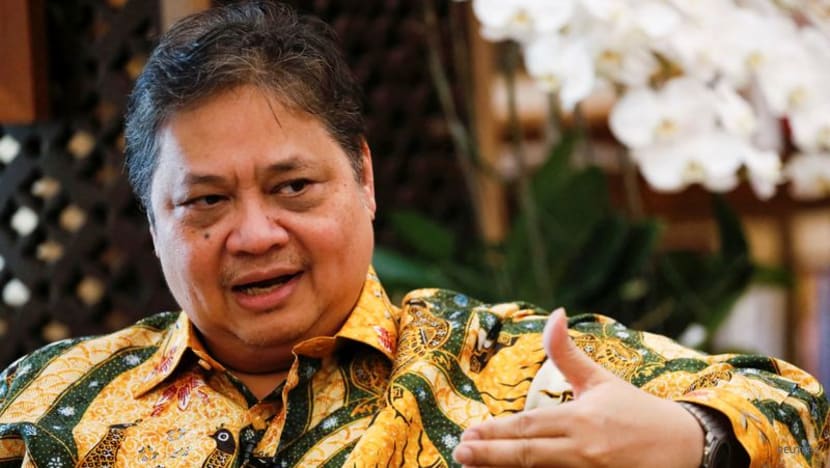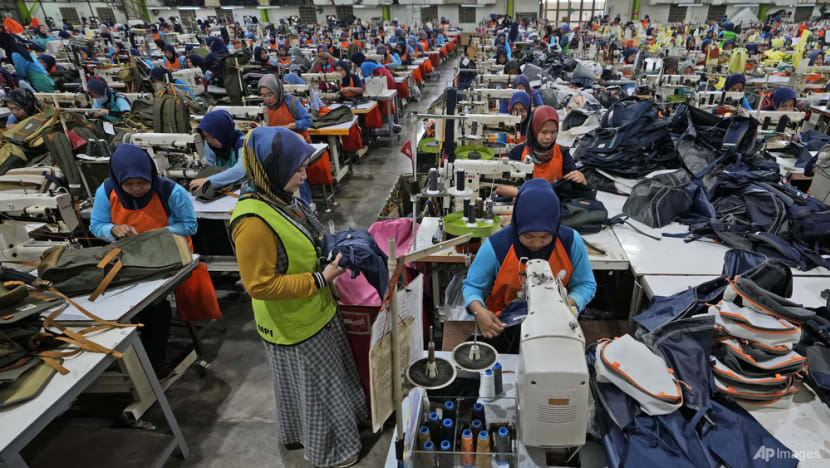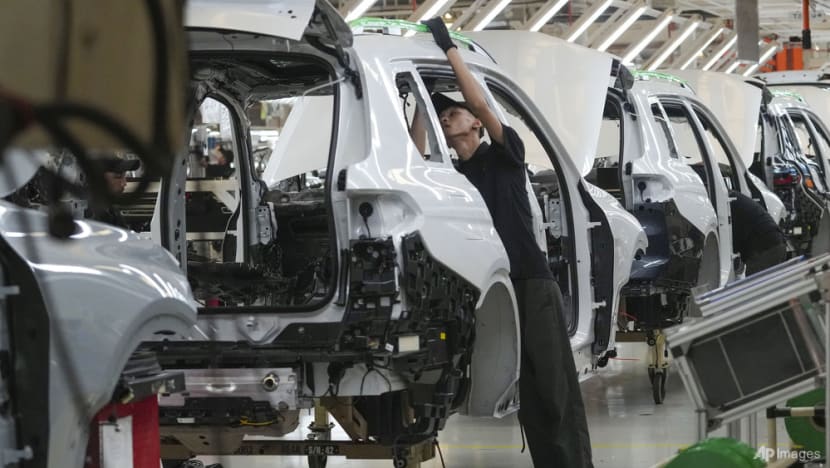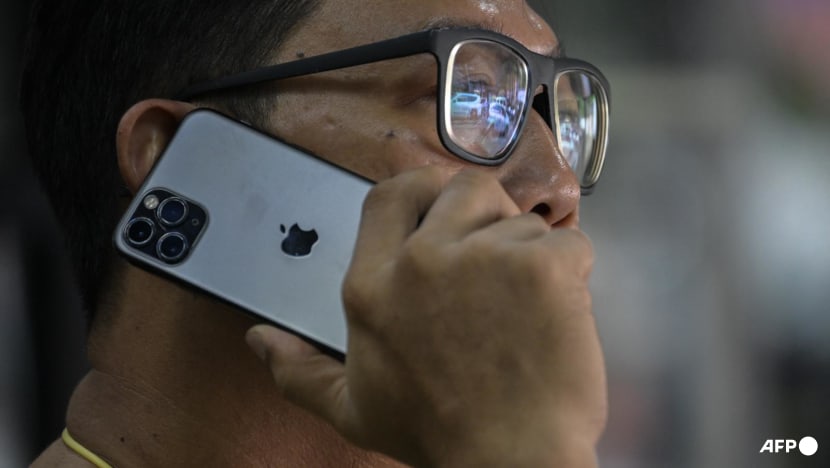US wants Indonesia to undo trade barriers amid tariff threat, but Jakarta should stand firm: Analysts
JAKARTA: Indonesia should stand firm against the United States’ recent demands to remove a broad suite of trade practices Washington considers unfair, experts said, arguing that some of these policies are needed to protect Southeast Asia’s largest economy’s national interests.
These so-called “trade barriers” were identified in a report by the US Trade Representative (USTR) on Mar 31 detailing factors hindering US companies from entering the Indonesian market.
The 2025 National Trade Estimate (NTE) Report on Foreign Trade Barriers has been used as one of the bases for US President Donald Trump to impose a planned 32 per cent tariff on Indonesian goods.
The USTR is leading the technical negotiations with various countries including Indonesia amid the tariff threat.
Among the barriers mentioned by the report are lax protection of copyright laws, rampant corruption and overly complicated bureaucracy which have been cause for concern for many companies operating in Indonesia, US-owned or otherwise.
However, experts noted that the USTR list includes policies which should not be considered trade barriers.
These include Indonesia’s efforts to develop its own cashless payment system and those which Indonesia needs to protect its own national interests such as import quotas and requirements to have some components produced locally before a product can be sold in Indonesia.
“We need some of these policies to protect our own manufacturing sector, spur investment and to stimulate our economy. It will be unreasonable for Indonesia to meet all these demands (from the US),” Tauhid Ahmad, an economist from Jakarta-based think-tank Institute for Development of Economics and Finance (INDEF) told CNA.
Without these policies, the archipelago could risk losing massive amounts of foreign investment, higher unemployment and even a recession, warn experts.
Over the last two weeks, several senior Indonesian officials have met with their US counterparts at the sideline of an International Monetary Fund and World Bank Group summit in Washington DC, to negotiate the proposed 32 per cent tariffs the US wants to impose on Indonesia.
These tariffs have been put on hold for 90 days since Apr 9, along with other “reciprocal” tariffs on imports from almost 60 countries. The 10 per cent baseline tariff on all countries is still in place.
Coordinating minister for economy, Airlangga Hartarto who led the Indonesian delegation, said that Indonesia is willing to negotiate these trade barriers on top of buying billions of dollars worth of US products, in exchange for a lower tariff.
“In principle, what Indonesia is offering … is appreciated by America,” Airlangga told reporters on Monday. The minister refused to elaborate further but promised that any agreement between the two countries would be a “win-win solution”.

When Indonesia became one of more than 180 countries and territories targeted by Trump’s reciprocal tariffs on Apr 2, Southeast Asia’s biggest economy responded by vowing not to retaliate and instead import more goods from the US to balance Indonesia’s trade surplus.
As negotiations continued, experts said it appeared that the Trump administration wanted more and urged Indonesia to also remove what the US considered to be “trade barriers”.
“These trade barriers have been identified in previous USTR reports, long before Trump became president. The difference is this time the US is using the threat of tariffs to get what they want: the elimination of all these barriers for American goods,” Tauhid of INDEF said.
The tariff plan has already sparked fear of a potential recession, leading the Indonesian stock market to drop by nine per cent on Apr 8, its first trading day after the Idul Fitri holiday period.
In April the World Bank slashed Indonesia’s growth forecast from 5.1 per cent to 4.7 per cent this year. Indonesia’s Finance Ministry however is confident that the country can still grow by 5 per cent this year, although the figure is lower than Indonesia’s economic growth target of 5.2 per cent.
SOME REQUIREMENTS RELAXED
Part of the reason why Trump is threatening to impose a 32 per cent tariff on Indonesian goods is that the US is buying more from Indonesia than the other way around.
Last year, Indonesia exported US$28.1 billion worth of electrical appliances, clothes, furniture and other products to the US, a 4.8 per cent rise from 2023. Conversely, US exports’ to Indonesia amounted to US$10.2 billion, up 3.7 per cent from 2023.
This means that from 2023 to 2024, the US’ trade deficit with Indonesia has grown by 5.4 per cent from US$17 billion to US$17.9 billion.

Indonesian President Prabowo Subianto said the country is prepared to be flexible about its local content requirement policy, which the USTR has identified as a trade barrier. The policy, known as TKDN, requires a product to have a certain percentage of components produced locally before it can be sold in the Indonesian market.
“We have to be realistic. If we force TKDN (to be applied), in the end, we will lose a competitive advantage. TKDN needs to be flexible or perhaps replaced with incentives,” Prabowo said on Apr 9, a week after Trump announced his tariffs.
The TKDN requirement was one of the reasons why tech giant Apple could not sell its iPhone 16 in Indonesia after its launch in October last year. The ban was lifted in March when Apple finally met the 40 per cent local component requirement set by Jakarta and agreed to build two Apple accessory factories in Indonesia.
Experts lambasted Prabowo’s statement, saying that although so far it has yet resulted in any amendments to the requirement, the comment was enough to dissuade several investors from putting their money in Indonesia.
“Some investors are waiting to see what Indonesia is going to do next. If Indonesia really scraps the TKDN requirement as the US had wanted, what is the point of opening up a factory (in Indonesia) to produce local components?” Bhima Yudhistira, executive director of the Center of Economic and Law Studies (CELIOS), another Jakarta-based think tank, told CNA.

Experts have also defended Indonesia’s decision to develop its own QR Code-based payment gateway, QRIS, which allows consumers to pay with their phones instead of debit or credit cards.
As more and more Indonesians prefer the QRIS over cards issued by Visa or Mastercard, both American multinational payment cards, the USTR listed the payment system as a trade barrier.
According to the US agency, US companies “were not ... invited to share views on how the system might interact with existing global payment frameworks”.
According to Bank Indonesia, there were more than 2.6 billion rupiah (US$156,681) worth of transactions using the QRIS system in the first three months of 2025, a 170 per cent growth compared to the same period last year.
Bank Indonesia’s Senior Deputy Governor Destry Damayanti said the central bank is open to working with any country, including the US, on QRIS or other fast payment technologies.
“Visa and Mastercard are still major players in our credit card space, so really, there’s no issue,” she said last week as quoted by the Jakarta Globe.
On Monday, Airlangga confirmed that some trade barriers identified by USTR will either be relaxed or eliminated entirely, but did not say which ones.
The minister said over the next 60 days, there will be more meetings between the US and Indonesia over the matter.
RISK OF OPENING A FLOODGATE
Indonesia is also looking to increase its import of American products.
Airlangga said his country is prepared to bring this year’s imports from the US to US$18.5 billion, a significant increase from last year’s US$10.2 billion. The minister said Indonesia is also ready to provide incentives so that some American products are sold more competitively in Indonesia.

Bhima of CELIOS said Indonesia does not need to relax its non-tariff trade barriers, arguing that the offer to increase imports has been generous enough.
“Trump has time and time again argued that the tariffs are about overcoming the US trade deficit with other countries and Indonesia is offering to close that deficit,” he said, adding that relaxing some of Indonesia’s protectionist policies like import quotas or the local component requirements could open a floodgate of foreign products.
“Because of the trade war, every country is looking to dump products which they cannot sell to the US. If we open some of these trade barriers, Indonesia will be flooded with foreign goods and our manufacturing sector will suffer,” Bhima said.
Yusuf Rendy Manilet, an economist from think tank, Center of Reform on Economics (CORE) said Indonesia could relax some quotas and requirements on certain products.
“Especially commodities that we cannot produce ourselves but the US has a lot of like wheat or soy,” he said.
“The bottom line is we should not be hasty about opening up our import quota or other non-tariff trade barriers.”
Yusuf said that other wheat and soy-producing countries might want to make sure Indonesia keeps buying their commodities over the US.
“We can use that to our advantage, particularly to diversify the market for our own products,” he added.
Minister Airlangga said Indonesia is currently in talks with many countries on how they can cooperate amid the ongoing trade war.
“At the same time, we need to address the more legitimate concerns the USTR had like the lack of copyright protection which led to the proliferation of pirated software developed by US tech companies,” Yusuf said.
For 13 years in a row, Indonesia has been on USTR’s Priority Watch List with respect to intellectual property protection and enforcement.
The US agency wrote in its March report that pirated software, fake apparel and other counterfeited goods are being sold in the open with “little or no enforcement actions.” Even when law enforcers decide to take action, producers and sellers of counterfeit goods are rarely prosecuted in court.
Bhima of CELIOS said Indonesia also needs to streamline bureaucracy and stamp out corruption.
“We need to show that for the more reasonable concerns raised by the USTR, we are addressing them seriously,” he said.
Indonesia also needs to remind Trump that Indonesia has been a very good friend of the US, said some experts.
“We have for decades given US companies mining concessions, oil exploration permits and other privileges and benefits,” Bhima said.
“Imposing tariffs is no way to treat a friend.”
Disclaimer: Investing carries risk. This is not financial advice. The above content should not be regarded as an offer, recommendation, or solicitation on acquiring or disposing of any financial products, any associated discussions, comments, or posts by author or other users should not be considered as such either. It is solely for general information purpose only, which does not consider your own investment objectives, financial situations or needs. TTM assumes no responsibility or warranty for the accuracy and completeness of the information, investors should do their own research and may seek professional advice before investing.
Most Discussed
- 1
- 2
- 3
- 4
- 5
- 6
- 7
- 8
- 9
- 10